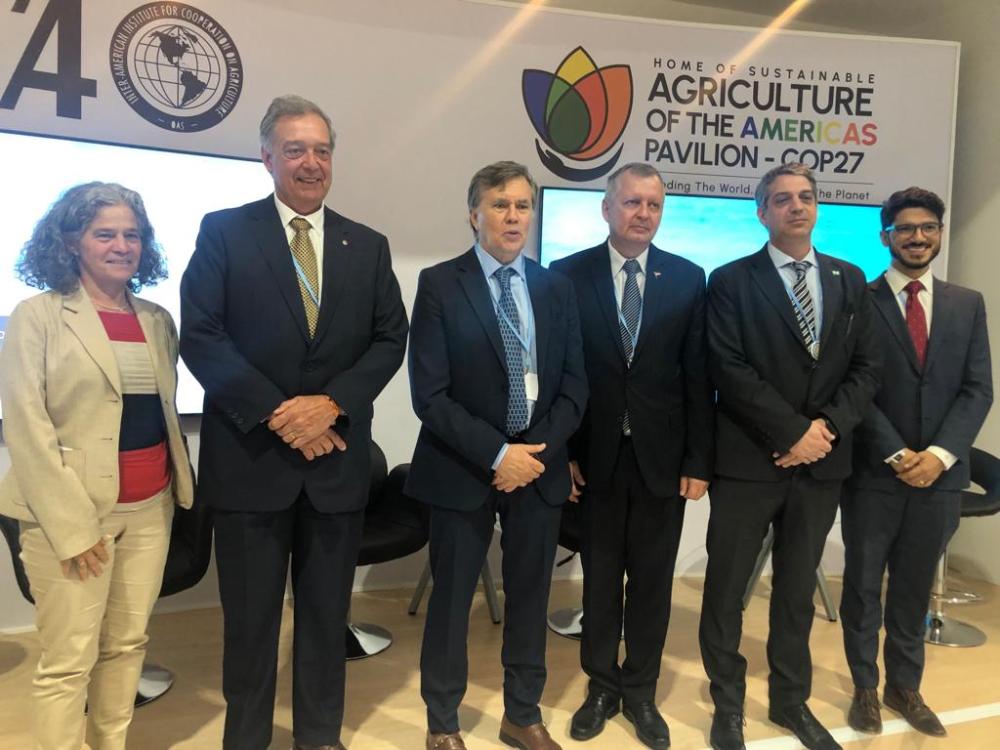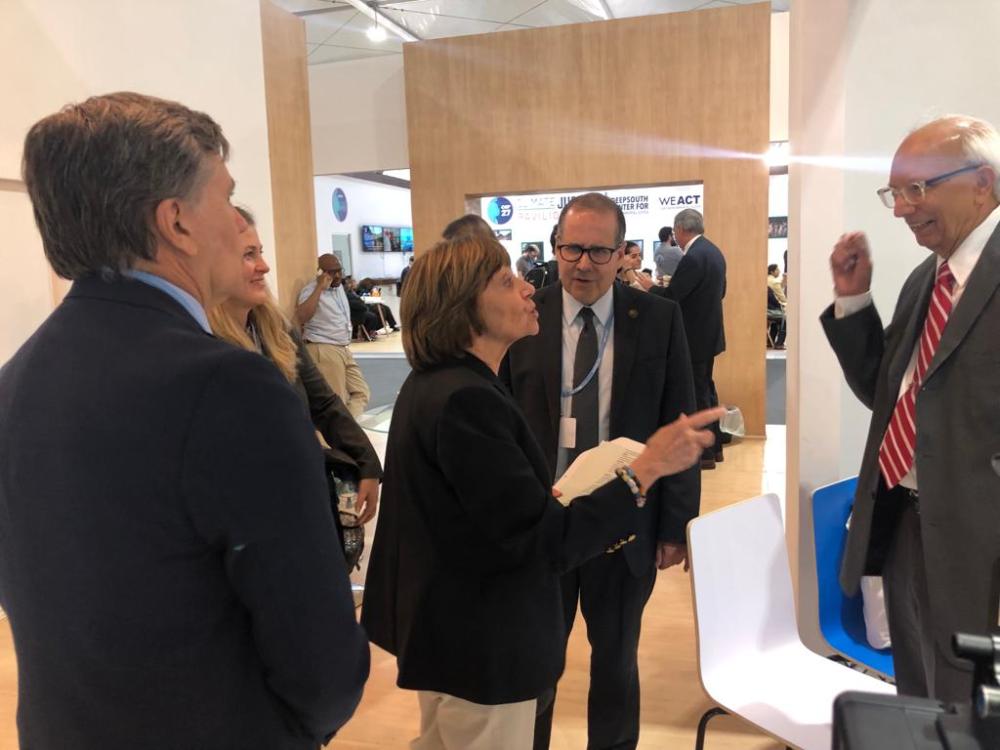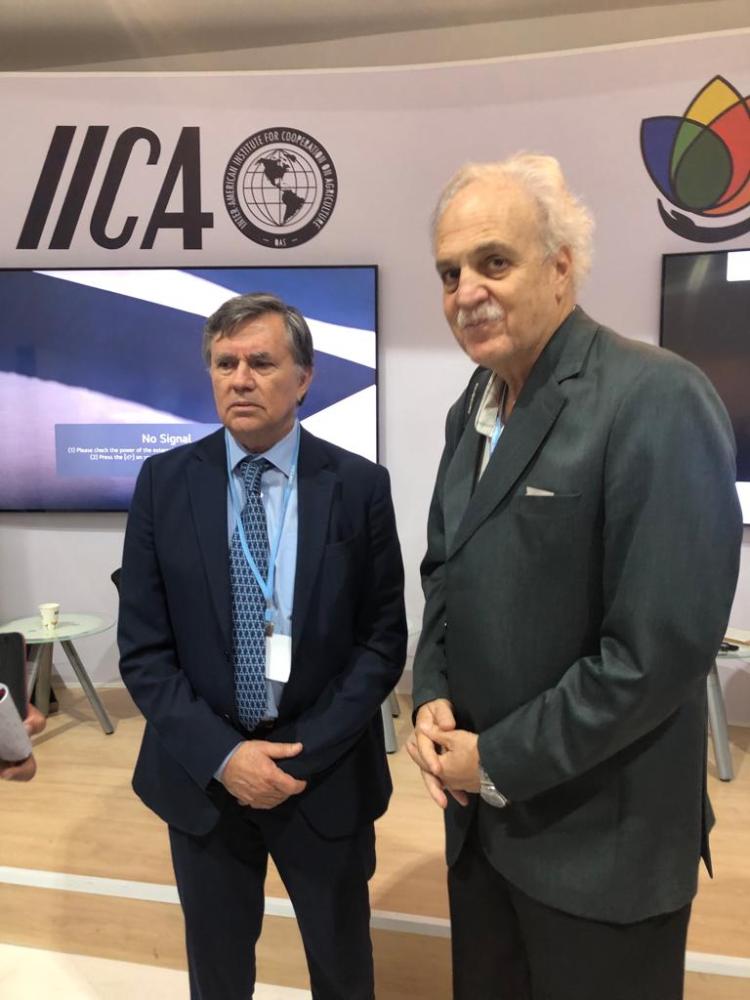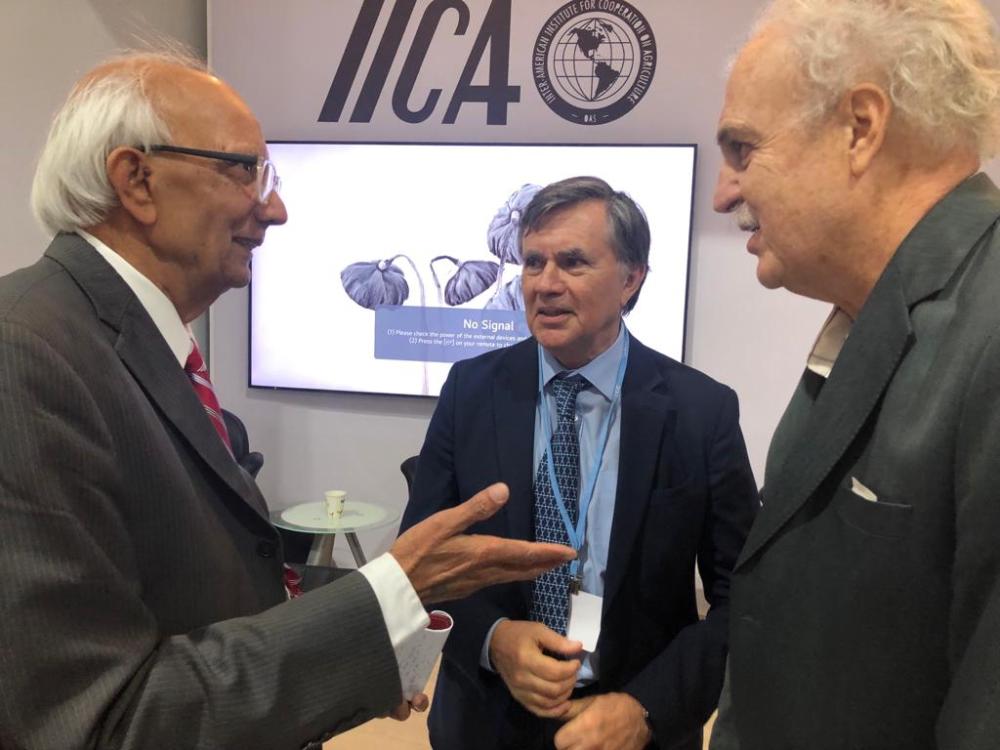At COP27, countries of the Southern Region describe their contribution to the fight against climate change by increasing livestock productivity and producers’ income

Sharm El Sheikh, Egypt. 14 November 2022 (IICA) - The pavilion of the Inter-American Institute for Cooperation on Agriculture (IICA) at COP 27 was the stage where countries of the Southern Region of the Americas showed the rest of the world the significant progress they have recently made towards improving the sustainability of their livestock farming.
With concrete evidence and data, they explained the results of the programs they have implemented to reduce the greenhouse gas (GHG) emissions of their production systems, which have not only yielded positive environmental results, but have also improved the income of rural families.
The session, entitled “Sustainable Livestock Production as a Contribution to the Sustainability Commitments of Agrifood Systems”, included presentations by Cecilia Jones, Coordinator of the Sustainability and Climate Change Unit of the Ministry of Livestock, Agriculture and Fisheries of Uruguay; and Fernando Zelner, Advisor to the Ministry of Agriculture, Livestock and Food Supply of Brazil.
Remarks were also made by the Minister of Livestock, Agriculture and Fisheries of Uruguay, Fernando Mattos; the Minister of Agriculture and Livestock of Paraguay, Santiago Bertoni; and the Undersecretary for Policy Coordination of the Ministry of Agriculture, Livestock and Fisheries of Argentina, Ariel Martínez.
Verónica Durán, Director of the Programming and Agricultural Policy Office of the Uruguayan ministry, served as moderator of the event, which was opened by the Director General of IICA, Manuel Otero.
Also in attendance were Barbara Stinson, President of the World Food Prize Foundation (WFP); Karen Ross, Secretary of the California Department of Food and Agriculture; and Rattan Lal, IICA Special Envoy to COP27, the world’s leading authority on soil sciences, 2020 World Food Prize winner and IICA Goodwill Ambassador.

Jones explained that Uruguay has a very particular situation in terms of its emissions, given that most are derived from agriculture, forestry and other land uses, which is not the case for most countries. At the same time, most of Uruguay’s livestock farming is carried out on natural grasslands, making a significant contribution to carbon sequestration.
The specialist explained that Uruguay implemented a system to calculate emissions per hectare and per kilo of meat produced. “The tool helps us see what is happening, and we have confirmed that the natural field itself is capable of sequestering carbon, despite the fact that many people think that only trees are able to do this”, she said.
On Uruguayan farms of up to 2,000 hectares that implement sustainability plans, emissions decreased by 10% thanks to a reduction in the stock of cattle, while meat production increased. “We are able to produce more while preserving natural systems. We have been able to increase household incomes and reduce emissions. At the end of the project, we also hope to demonstrate that we are sequestering carbon and biomass in soils”, remarked Jones.

Fernando Zelner recounted the achievements of the Low-Carbon Agriculture Plan, Brazil’s primary tool for achieving sustainability in production systems. The ABC+ Plan fosters good science-based practices by means of three mechanisms: loans at preferential rates, technical assistance to train producers, and support for innovation and research.
“The program was launched in 2009. In the first ten years, six technologies were promoted and we surpassed the goals we had set, given that we restored 52 million hectares, which is one and a half times the surface area of Germany, and mitigated 170 million tons of CO2 equivalent”, he said.
Zelner explained that the second phase of the project, launched in 2020, focuses on issues such as biological nitrogen fixation, direct seeding, pasture restoration, agrosilvopastoral systems, and animal waste management.
“Through our work on 72 million hectares, we hope to mitigate the emission of 1 billion tons of CO2. One positive aspect is that for every Brazilian real invested in public policies, producers invest 7. This demonstrates that public investment can catalyze private investment”, he remarked.
A stronger regional position
Santiago Bertoni, the minister from Paraguay, highlighted the work of IICA and its Director General to develop a common vision in the region and maintained that, “We have strengthened our position”.
“Our livestock sector is utilizing pastures in a sustainable way; and we must develop our own forms of measurement, so that we will not have to use measurement systems that do not take into account carbon sequestration. We must not allow ourselves to be bulldozed. We must continue working to defend our market access and ensure that trade barriers are not imposed”, said Bertoni.

On the other hand, Mattos felt that discussions on the environment and its link to livestock production are vital for the countries of the South. “A very important game is being played here. There is a risk that trade neo protectionism in relation to agricultural production may now be arising, based on environmental considerations”, he warned.
Moreover, he pointed out that, “We are the only production activity that captures carbon and we cannot let ourselves come under fire from fake news. We are victims of climate change, as it is affecting small farmers. We are being blamed for the faults of others”.
Martínez agreed that the countries of the South should wage a communication battle and commended IICA for installing the Home of Sustainable Agriculture of the Americas pavilion at COP27, to ensure that the voice of the region’s food production sector is heard.
“When the countries of the expanded Mercosur region united, things improved for us. Science had already been in our favor for a long time, but an incorrect narrative is being presented”, he concluded.
More information:
Institutional Communication Division.
comunicacion.institucional@iica.int